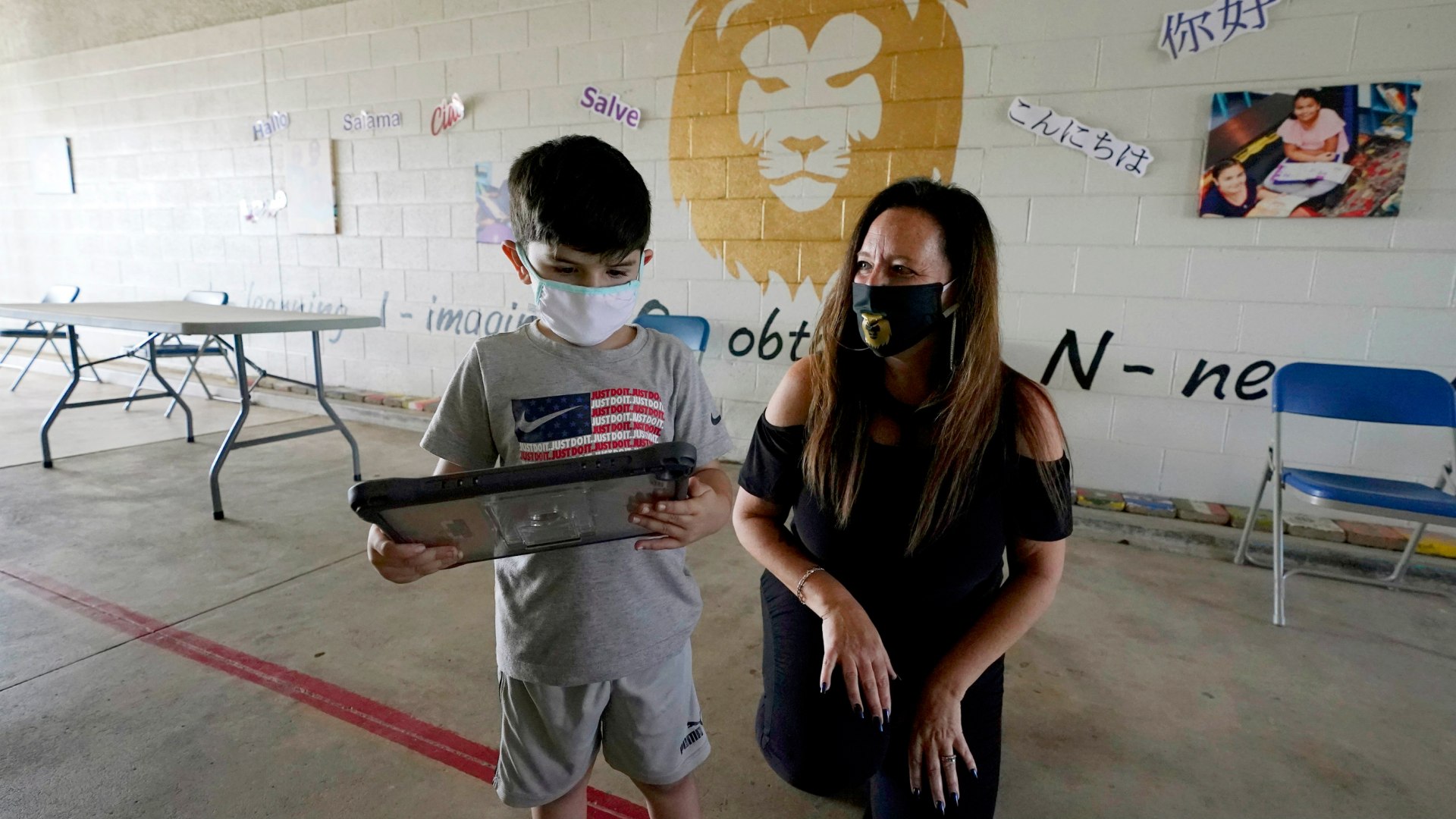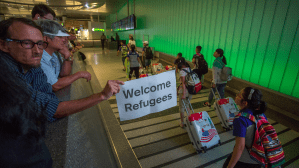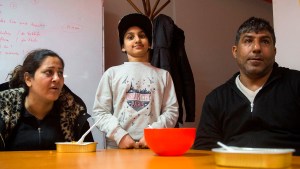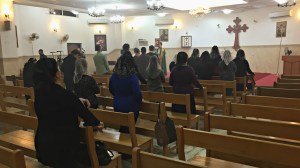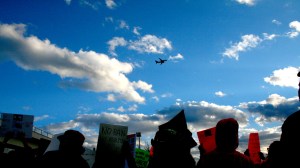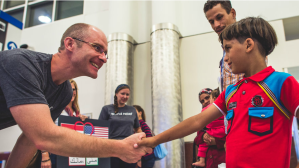In this series
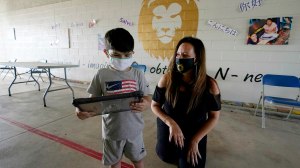
After President-elect Joe Biden reiterated his pledge to raise the refugee ceiling to 125,000, resettlement agencies are making plans to restore their efforts to “welcome the stranger.”
Under the Trump administration, the refugee ceiling dropped by 80 percent, down to a record low of 15,000, and agencies drastically scaled back operations as they lost out on the funding that accompanies new refugees.
Biden’s remarks come as exciting news to Christians working in refugee resettlement, though the prospect of an influx of refugees to the US poses a challenge to the system after four years of decline.
“We’re encouraged by President-elect Biden’s ambitious commitment to refugee resettlement,” said Scott Arbeiter, president of World Relief, one of nine nongovernmental organizations resettling refugees in the US. “I appreciate the message this commitment sends to the world—that the US is ready to lead once again—and we at World Relief will be working with our church partners to prepare to welcome as many as we can in 2021 and, hopefully, continue to grow that effort in the years that follow.”
After years of growth, the evangelical agency shut down eight of its local offices and laid off over a third of its staff during the Trump administration. Overall, a third of the nation’s resettlement agencies have either stopped resettling refugees or have closed their doors completely over the past four years.
“To be sure, returning to such a high level of resettlement after several years of historic lows will be very challenging, particularly because the national infrastructure for resettlement has been dramatically reduced,” Arbeiter says.
Now, there aren’t as many offices, staff, and volunteers working to process and assist refugees admitted to the US. Even with the reduction in entrants, there’s a backlog of families waiting for their paperwork to make it through the pipeline. Some leaders and advocates think it may take two presidential terms to rebuild the program back to what it was pre-Trump.
“The new administration will have to invest in both the overseas and domestic side of refugee resettlement in order to get anywhere near 125,000,” said Paedia Mixon, CEO of New American Pathways, a resettlement agency in Atlanta. “These investments will take time to produce results.”
The resettlement landscape has lost expertise and networking relationships as offices shut down and leaders and staff moved on to other work.
In less than five years, Jose Vega saw both of its offices in Florida shut down. Vega was the director of the Miami office for two years before it closed in 2017 and then became the director of the Jacksonville office, which closed in 2019. Both times, he had to let go of nearly all of his staff members before having to close the office altogether.
Vega, a Paraguayan immigrant and World Relief’s first Hispanic director, saw suffering on both sides of the refugee resettlement equation.
There’s “a picture of the people you have on your staff and a picture of the people that are over there in the refugee camps who are waiting,” Vega said. “If you put those things together, you find that there are a lot of people being affected and a lot of suffering going on.”
Vega, who now works as a medical chaplain and Baptist pastor, says the church can lead the way in listening to and learning from refugees rather than fueling misconceptions.
Church partnerships
Meeting the rising demand of refugee levels will require greater involvement of the community in order to create more sustainable support systems, leaders say. Because while the government controls the number of refugees admitted, most resettlement agencies also rely on the generosity of private donors and grant opportunities to continue their operations.
World Relief offices have spent years building partnerships with local churches and ministries, and they will be even more reliant on these networks for financial support, tangible resources, and a steady volunteer base until they are able to secure the funding necessary to ramp up to receive and welcome such a large influx of incoming refugees in the long-term.
“Our largest challenge will be rapidly increasing our current capacity, from resettling less than 100 people annually to potentially over 600 within a year or two,” said Susan Sperry, the executive director of World Relief in the Chicagoland region. “We plan to mobilize more staff, volunteers, churches, and community partners to provide the support refugees need as they resettle.”
In other words, it will not only take time to ramp up to the higher levels of refugees; it will also require willing hands and hearts dedicated to helping displaced people make their home in the US. And a big part of that effort will be achieved through advocacy and education in the community of faith.
Two-thirds of white evangelicals believe the US does not have responsibility to accept refugees, according to a 2018 Pew Research survey, but pastors and ministry leaders have mobilized behind the cause, citing both biblical directives and the desire to help Christians fleeing persecution in their home countries.
“I believe if the church prioritizes caring for the vulnerable, and if the church follows this prioritization with resources, this infrastructure can be rebuilt over the next several years,” says Kara Ulmer, the former director of World Relief Akron, which closed last year. “Then we will once again be known as a people who care, who love instead of fear, and who show hospitality to strangers. This is my hope and also the challenge before us.”
John Arnold, who served at the World Relief Atlanta office for over two decades before it closed last year, joined a new local nonprofit called the Welcome Co-Op, which provides logistics support for the remaining resettlement agencies in the area.
This month, its leaders will meet to discuss operations under the incoming Biden administration, making plans to secure further funding, expand the staff, find permanent warehouse space, buy vehicles and equipment, and finally build the website. The Welcome Co-Op is also moving forward with plans to open the first thrift store in Clarkston, the Atlanta suburb that has become a major hub for resettlement.
Despite the many obstacles World Relief and other refugee resettlement organizations will face, they are excited and optimistic about restoring the program and deepening their partnership with believers following God’s call to care for foreigners in need.
“There’s still a good percent of the population who thinks it’s wrong and will probably be critical of Biden,” he said. “But we know that God is for the foreigner and loves the foreigner more than we ever could, and so we’re excited about what that might look like.”
Moreover, Arnold believes that although some would attribute these changes to a different political party or president coming into power, he knows God is sovereign and can make things happen.
“We have to keep looking to him,” Arnold says. “We don’t know what the future holds or what’s going to happen, but there’s definitely a relief and a hope that there’s going to be a different future ahead of us, and that it will be even better than it was before.”

